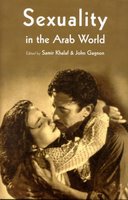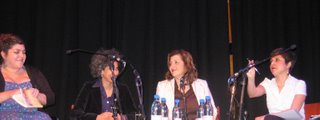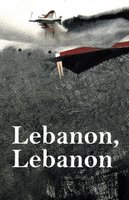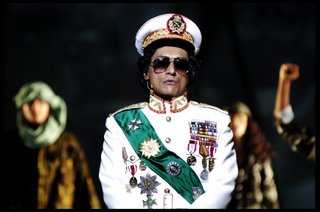
Freemuse’s 3rd World Conference on Music and Censorship
by
Susannah Tarbush
It was particularly appropriate that the Danish organisation Freemuse, which campaigns for freedom of musical expression, chose Istanbul as the venue for its recent 3rd World Conference on Music and Censorship. Istanbul has one of the most exciting and diverse music scenes of any city in the world today, as shown by the acclaimed 1995 documentary film “Crossing the Bridge: The Sound of Istanbul” directed by Fatih Akin.
But at the same time numerous Turkish musicians, and others involved in the music industry, have over several decades suffered censorship, restrictions, and in some cases arrest, imprisonment and exile.
The two-day conference was held at Bilgi University. Professor Turgut Tarhani, dean of the faculty of law and director of the university’s Human Rights Law Research Centre, described the conference as “one of the important events on the Turkish social and human rights scene in recent years and the months or the years to come.”
On the second day of the conference a new Turkish initiative was launched named ‘Sanatta Sansure Son (SSS)’, meaning ‘End to Censorship in the Arts’. Marie Korpe, the executive director of Freemuse, said in her speech: “The new initiative started among young musicians, but is not limited to music, because other branches of the arts also need such an initiative.” Korpe noted that Turkey is now the only country of the 22 countries represented at the conference to have a specific organisation defending the right of musicians and artists to free expression.
The session on Turkey was one of the most moving parts of the conference. It was presented by the composer and song writer Sanar Yurdatapan, spokesman of the ‘Association for Freedom of Expression’. Yurdatapan has been imprisoned three times and continuously harassed, and for some years he was exiled in Germany and stripped of his Turkish citizenship.
During the session some 15 Turkish singers, musicians, composers, broadcasters and music producers ascended to the platform one by one to give their personal testimony
(above). They included the Kurdish singer Selda Bagcan who was known in the 1970s as ‘the Turkish Joan Baez’. She was arrested, tried and imprisoned after the 1980 coup and as recently as May this year was prevented by the authorities at Ataturk airport, Istanbul, from travelling to Canada for a concert.
Another Kurdish singer, Ferhat Tunc
(below left), has been banned and imprisoned several times and is still facing court action. Members of the band Grup Yorum, known for its political songs, have been put on trial and imprisoned many times.
Gulten Kayat, widow of the Kurdish poet, singer and artist Ahmet Kaya told of how he went into exile in France in 1999 after announcing at a concert that his next album would be in Kurdish. In March 2000 he was sentenced in absentia to a prison term. He died of a heart attack in Paris in that year and Gulten told the conference: “The only reason he died at the age of 43 was that he was exiled.”
Selda Yesiltepe, editor of the Voice of Anatolia radio station, which is described as “the voice of the oppressed”, spoke of the pressures on the station from the Radio and Television Higher Board. For example the station was closed for three months in 2001 for broadcasting a programme on hunger strikers in prison and in 2003 it was closed for a month for broadcasting a song by Ahmet Kaya.
From an earlier generation, the 87-year-old writer Vedat Turkali told of the five years he spent in prison with the late singer and musician Ruhi Su in the 1950s. Turkali said: “He suffered a lot; they took away his musical instruments.”
The conference was attended by more than 200 musicians, composers, and scholars from 22 countries. It focused on music censorship in countries ranging from Cuba, Zimbabwe and South Africa to Indonesia, China and Afghanistan. In addition, there were sessions on North Africa and the Middle East, and on West Africa.
The conference was also the occasion for the launch of Freemuse’s latest special report, on Belarus. The authors of the report, Lemez Lovas and Maya Medich, found that the regime of President Lukashenko has a “fear of music as potential fuel for revolution and unrest, as in the Ukraine in 2004.” This has led to “restrictive broadcasting legislation and the reinvigoration of a huge bureaucratic system of censorship that is pushing independent musicians back into the role of Soviet era dissidents.”
The conference was opened by wonderful unaccompanied singing from the Iranian singer Mahsa Vahdat and her sister Marjan
(below, right). Several of the speakers included live musical performances as part of their presentations. The Ivory Coast reggae star Fadal Dey
(below right) walked onto the conference platform singing in French, and later performed his new song “Free Iraq”.

As the studies from different countries showed, music censorship is a complex subject. It is for reasons including politics, religion, sexuality, ethnicity or history. It takes various forms, including government legislation and other measures, social pressures and the policies of broadcasters and the recording industry. Added to this is the pervasive and damaging phenomenon of self-censorship.
The Zimbabwean government of Robert Mugabe has adopted a particularly tough and blatant approach towards music censorship. The Zimbabwean journalist Maxwell Sibanda explained: “In 2001 the government decided to record music itself. It put aside some money and said it was going to record music to promote its policies.”
The then information minister Jonathan Moyo coordinated and recorded four music albums, and a fellow minister recorded two music albums and sang on some of the songs that appeared on videos. In all, the government recorded more than 10 music albums. It banned all foreign music from radio, and foreign films from television, and blacklisted all musicians singing against its policies. As the government owns Zimbabwe’s one TV station and all four radio stations, one song produced by the government might be broadcast 72 times in one day, Sibanda said.
The Zimbabwean singer Thomas Mapfumo moved with his family to live in the US for safety reasons after criticising the government in his songs. Musicians from other countries have also been forced into exile. The exiled Uyghur composer, musician and poet Kurash Sultan from East Turkistan (the Xinjiang province of China), who took refuge in Sweden in 1999, had been due to speak at the conference but he suddenly died of a heart attack on 29 October at the age of only 47.
Sultan was imprisoned and tortured by the Chinese authorities and many of his songs, which called for freedom, were banned in East Turkistan. The China session of the conference was dedicated to his memory, and his brother Kaiser Abdurusul travelled from Sweden to give an emotional address about him and to play a video of his virtuoso playing of the stringed lute known as the duttar.
Jeroen de Kloet of the University of Amsterdam noted that in China censorship has loosened tremendously over the past 10 years. For example since 1997 there has been the annual three-day Midi rock festival in Beijing. “China doesn’t really exist – there are many Chinas,” De Kloet said. Thus a musician not allowed to perform in Beijing may be allowed to perform in South China.
But De Kloet referred the complicity of the West in Chinese censorship, with Google for example agreeing to censor sensitive material on its China service.
The session on South Africa was remarkable in that it brought together on the same platform the white musician Roger Lucey and the former secret policeman Paul Erasmus who in the 1980s successfully destroyed Lucey’s musical career as a political folk singer performing songs against apartheid. In 1995 Erasmus went public and admitted what he had done, and in 2001 he was granted amnesty by the Truth and Reconciliation Commission for his activities against Lucey.
Alongside Lucey and Erasmus on the platform were Freemuse’s Programme Officer Ole Reitov and Michael Drewett of Rhodes University, South Africa. Reitov prompted Freemuse to fund an extraordinary film entitled “Stopping the Music: a story of censorship in apartheid South Africa” which tells the story of Lucey and Erasmus, and in which the two men meet for the first time. Drewett researched, co-wrote and produced the film.
In Indonesia the musician Ahmad Dhani, a founder in 1986 of the highly popular rock group Dewa 19, has been challenging religious extremism through his recent music. Andrew Fuller of the University of Tasmania, Australia, explained that Dhani is opposed to the violent ideology of groups such as Front Pembela Islam (FBI) meaning ‘The Front for Defenders of Islam’ - and ‘Laskar Jihad’ (Soliders of Jihad).
In November 2004 Dewa 19 released the CD ‘Laskar Cinta’ meaning ‘Soldiers of Love’. In February this year it released the CD ‘Republik Cinta’ or ‘Republic of Love’. “What Dewa and Ahmed Dhani are doing is using their music to confront the conservatism of a large portion of Indonesian society,” Fuller said.
In addition to the examples of music censorship given during the conference, musicians have been facing increasing problems in getting visas and travelling since the terror attacks in the US on September 11 2001. Freemuse’s executive director Marie Korpe said that the tightening in visa procedures is “a threat to musicians” and is hitting musicians travelling from developing countries, as was seen at Freemuse’s 2nd world conference in Copenhagen in 2002 and now at the Istanbul conference. For example Fadal Dey, the singer from the Ivory Coast, had to travel to Senegal and wait a week for his Turkish visa. And Mario Masvidal, the speaker from Cuba, had to deal with Cuban, Turkish and finally French and Schengen bureaucracy.
Korpe said: “What lies ahead is difficult to say but the question is whether in the future it will be possible to gather people from across the world at a conference like ours today.”
Original of article published in Arabic translation in Al- Hayat newspaper on December 8 2006






















